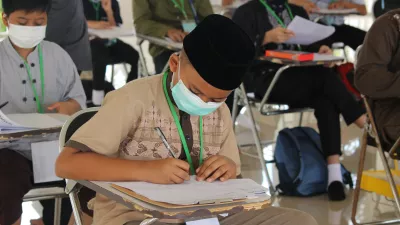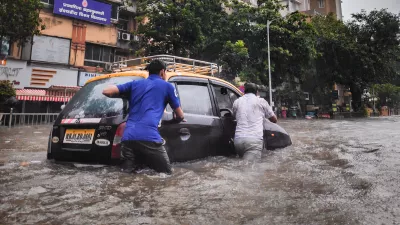Think Global Health
Think Global Health launched in 2020 as a joint initiative of the Council on Foreign Relations and IHME. Browse the articles written by IHME authors and published on the Think Global Health website.
Recommendations, analyses, forecasts, interviews, and data visualizations on the site have been circulated widely and many have been featured in or cited by news outlets including the New York Times, BBC, and many others. Think Global Health was nominated for a Webby Award in 2021 and 2022.
Where household air pollution causes the most harm
According to a new study, exposure to household air pollution remains a leading risk factor for disease and early death.
Autism and Identity: Navigating Disability Versus Difference
A personal account describes the challenges many people on the autism spectrum face and the need for better support
A “Defining Moment” for Global Health Funding
Track how President Trump’s executive orders have jeopardized global health programs that rely on the United States
The lasting damage of wildfires
The health impacts of wildfires are observed years after the initial blazes.
The 10 Americas: How geography, race, and income shape US life expectancy
The differences in U.S. life expectancy are so large it's as if the population lives in separate Americas instead of one.
Out cold: The most common wintertime injuries in a warming world
Shifting weather and rising heating costs create wintertime threats, namely among the elderly and other at-risk groups.
A stillbirth every 10 seconds
A new study estimates global stillbirths down to 20 weeks' gestation.
The last mile of nutrition
Introducing a new way to measure the health impacts of community-based food programs and farmers markets.
Africa's health financing gap
Donor health funding is declining in sub-Saharan Africa, and domestic spending is not rising to cover the gaps.
Olympics spotlight gender-informed injury prevention
Some types of injuries are more common among young women athletes.
How gender and sex shape disease
New research exposes why health systems should tailor responses to the needs of men and women starting at a young age.
COVID-era learning loss tied to food insecurity
New data points to food security as a predicator of academic success during the pandemic.
Vaccine confidence after COVID-19
How the pandemic has shifted levels of trust: An interview with IHME's Ali Mokdad.
Preventing carbon monoxide poisoning when disasters hit
As extreme weather events and disasters increase amid climate change, here are ways to stop needless deaths.
Espoir pour une condition négligée (Hope for a neglected condition)
Une interview avec un organisatrice et une activiste née avec la maladie de la drépanocytose en RDC, ainsi qu'un expert médical de premier plan. Traduit de l'article original publié dans Think Global Health.















